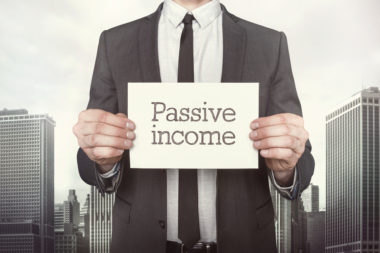Many baby boomers are starting to approach their retirement years. Their children are moving out of the house and their careers are winding to a close.
Yet as many baby boomers get closer to retirement, many of them may be delaying the year in which they are able to retire. As a result of the 2008 financial crisis, some individuals pulled from their retirement funds earlier than expected, made poor investment choices, or accrued too much debt. Because of this, the average retirement savings of baby boomers has started to dwindle, making them a part of the working world for longer than anticipated.
What financial habits have worked for baby boomers, and which have not? The boomer generation has had plenty of experience in the financial world, so what lessons can we learn from their triumphs and mistakes?
Table of Contents
Financial Hardships That Baby Boomers Faced
Luckily, baby boomers aren’t the generation with the worst credit score. In fact, they typically are proud and happy credit card owners with an average credit card score of 696. In their early adult years, credit cards were just starting to appear on the market, and boomers were eager to jump on board and begin accruing debt.
With the addition of a booming and steady market (both in the sense of jobs and housing), this generation came of age in an era of unprecedented growth and high household incomes. For boomers, the risks posed by accruing debts on new credit cards were far outweighed by the convenience and status these cards afforded.
Since then, baby boomers have continued to cultivate a longstanding history with credit card companies and the credit bureaus. The flourishing financial market of the 80’s and 90’s helped fuel their spending and debt, and their comfortable jobs helped them keep debt payments within their means. However, most of this came crashing down with the financial crisis and stock market crash of 2008; in fact, some even believe that baby boomers made a negative impact on the economy.
Effects of the 2008 Stock Market Crash on Baby Boomers
Suddenly, when the Great Recession hit, many boomers’ retirement savings were devastated, saving for retirement seemed nearly impossible, jobs were lost, and repaying some of their previous debts was out of reach. Their spending needed to come to a screeching halt if they were going to make it through the crash. Some boomers had to forfeit their high credit scores and file for bankruptcy, while others turned to more debt to try to offset the sudden loss of income.
For baby boomers, it was a devastating blow to many of their preparations for retirement. Many people had their entire retirement portfolio disappear in a single day, and the ensuing panic drove them to withdraw all they had left in the stock market. However the market always stabilizes itself, but many boomers that pulled out of the market subsequently missed out on a growth of the market post-crash, and potentially a healthy retirement.
Many boomers even lost their previously stable jobs. With the crash came the shuttering of many small businesses and larger corporations. Suddenly unemployed, some boomers pulled from their retirement accounts early, before the age of 59, despite the 10% early withdrawal penalty. Some felt it was the only option to hold them off financially while they searched for new employment.
Recovering From the 2008 Stock Market Crash
Very few boomers made it through the financial crash unscathed. As Time Money wrote, “45% of boomers have zero retirement savings… And of those who have saved, only a little more than half have as much as $100,000 stashed away. All of which suggests that few boomers had significant amounts invested in stocks during a record bull market run.”
In the present day, it’s easy to look back at the growth of the stock market since the crash and see it as a missed opportunity for boomers. Their decisions to pull out from the market may have been alarmist, but it unfortunately compounded the losses they suffered to their portfolios and caused them to spend more years trying to recover, instead of enjoying retirement. To this day, some are having to work, even after retirement.
Luckily, since then, many have been able to keep their credit scores high and their debts in check. According to a 2020 report by Experian that analyzed the scores of every generation, baby boomers typically have a score over 700, and only use about 25% of their credit utilization ratio. However, they do also have high standing credit card debt, with an average of $6,788 in debt on their existing credit cards.
Of course, a poor retirement portfolio and long credit history is not the only issue facing baby boomers as they approach the retirement milestone. Other financial burdens are beginning to pile up.
Underestimated Costs of Healthcare
Besides lacking a comfortable retirement, baby boomers are also facing a health crisis. The rising cost of healthcare for boomers is putting pressure on their attempts to save money for retirement. There are ways to search for affordable healthcare plans, however, even with these options available, some individuals may be left with medical debt.
A retired couple can spend upwards of $275,000 on healthcare alone. Those costs may rise as with age, and those 85 and older are likely to spend one third of their income on medical expenses.
Challenges With Social Security
Outside of health concerns, baby boomers are also facing a unique challenge with their debt. Social Security payments only add up to about $1,300 a month on average, and a fixed income from retirement may be insufficient for paying off existing bills and expenses.
A retiree’s house, for instance, might be completely paid off and some baby boomers might be seeking out a comfortable “downsized” retirement home. However, if their housing mortgage is still substantial, they may be facing an additional hurdle that is prolonging their need to work.
Lessons to Learn
Time will tell how the baby boomer generation fares in their retirement. It is possible that some may rely on the financial help of their children. No matter what happens, this generation can teach other generations an important lesson about the impact your retirement portfolio can have on your life. Without investing early and often, future generations could face a similar retirement crisis.
However, baby boomers can also teach us the importance of improving and maintaining a high credit score. Despite the downfall of the economy during the 2008 crash, boomers were still able to maintain fairly high and even excellent credit ratings.
This has helped them gain homes, access to high-limit credit cards, and many other services that are not open to those with a lower score. The boomer generation provides us with a long-term case study of the importance of maintaining healthy credit habits.





